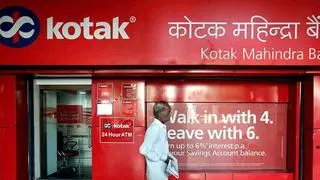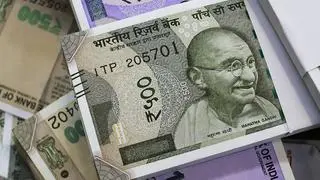The industry trade with countries facing sanctions such as Russia, Iran and Sri Lanka is expected to ease with the RBI’s plan to use the Indian rupee for settlement rather than US dollar and has raised hopes of making the rupee fully convertible.
The RBI move comes on the backdrop of few corporates sourcing raw materials from Russia and settling the trade in Chinese yuan and other currencies.
The rupee settlement will now benefit transactions with Russia, which is facing economic sanction by the US, Europe, Australia and Japan, after its war on Ukraine. Following this, Russian banks were promptly cut off from the international financial messaging system Swift.
With the RBI new initiative, Russian banks will open rupee accounts with Indian banks while Indian banks will start a rouble account in Russia. Both countries would agree to hold a sum of say $1 billion in local currencies in their respective accounts. Typically, Russian banks will have rupees worth $1 billion in their Indian accounts and Indian banks will have roubles worth $1 billion in their Russian accounts.
Mutually agreed exchange rate
Based on a mutually agreed exchange rate, Indian exporters can then be paid in rupees for their Russian exports while Russians will get paid in roubles for their Indian exports.
Rajesh Masand, President, Clothing Manufacturers Association, said the system may work fine and promote ease of trading with dollar-starved countries and open up new market for Indian exporters.
India needs to cut down on the huge price difference between the buy and sell quote on Indian rupee before making it a globally acceptable trading currency as business men do not prefer too much fluctuation in currency when they are tapping the international market, he said.
Siddhartha Rajagopal, Executive Director, Cotton Textile Export Promotion Council of India, said depending on the mechanism for arriving at the exchange rate, the RBI move will enable trade with Russiaand crisis-ridden Sri Lanka. The government should ensure that it retains all the incentives to tap these countries more efficiently and exports remain competitive, he added.
Vijay Kalantri, Chairman, MVIRDC World Trade Centre Mumbai, an international trade promotion organisation, said the RBI move may not cause material impact on exchange rate movement in the short run as it will take some time before the authorised banks set up rupee settlement mechanism after securing approval from the RBI.
The RBI has allowed foreign exporters to buy Indian rupee denominated bonds using their surplus export earnings which gives a sense that the RBI is trying to make rupee fully convertible on the capital account, but it does not lead to full convertibility of rupee as this is limited only to the surplus rupee earnings from exports, he added.








Comments
Comments have to be in English, and in full sentences. They cannot be abusive or personal. Please abide by our community guidelines for posting your comments.
We have migrated to a new commenting platform. If you are already a registered user of TheHindu Businessline and logged in, you may continue to engage with our articles. If you do not have an account please register and login to post comments. Users can access their older comments by logging into their accounts on Vuukle.